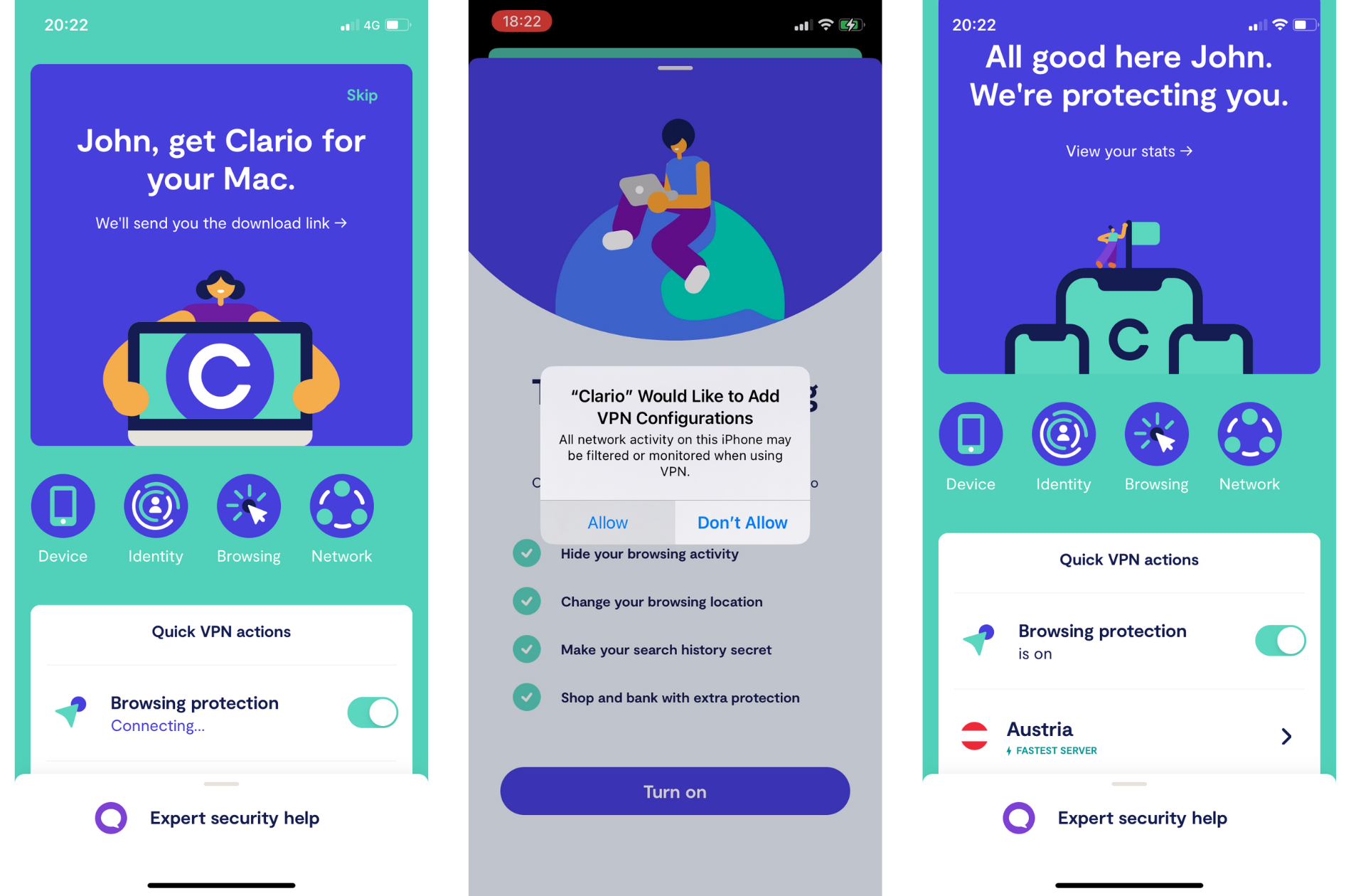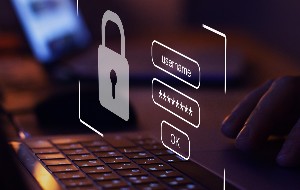Table of contents
- Why is Your Privacy Important?
- 11 Tips to Protect Yourself from Privacy Breach
- Know your Weaknesses
- Encryption
- Limit the Gathering and Storage of Personal Information
- Know When Information is No Longer Required
- Restrict Information Access
- Update Software and Safeguards
- Keep an Eye on and Use Intrusion Prevention
- Pay Attention to News Alerts related to the Industry
- Be Sure Employees Know How to Prevent a Breach
- What to Do After a Privacy Breach
- Monitor Your Financial Accounts & Check Your Credit Reports
- Secure Your Smartphone
- Use High-quality Security Software
- Avoid Oversharing on Social Media
- Outro
Why is Your Privacy Important?
It’s vital to keep your private information to yourself. In this current day and age, cybercrime is on the rise. In fact, 6.9 billion dollars was reported lost in 2021 to IC3, and criminals are constantly coming up with new sophisticated ways to commit crimes under other people's names.
If you don’t want to wake up one morning to the police knocking on your door to question you about some illegal transactions that took place under your name. It’s best to make sure you keep your private data secure and out of the hands of criminals.
11 Tips to Protect Yourself from Privacy Breach
There are many scenarios where your privacy may be at risk, and you may not even realize it. Read the tips below, and you’ll be an expert on how to stay safe and prevent yourself from becoming the next victim of a privacy breach.
Know your Weaknesses
As in any situation in life — preparation is key! Assessing where your system or organization's system may be weakest is the key to reinforcing your security and preventing breaches before they happen. Even the largest of companies can fall victim to a cyber attack, and you can read all about them in the top 10 data breaches of the 2010s.
Encryption
Encrypting your files will prevent thieves from being able to open them even if they can gain access to the network in which they are stored. Using a service such as Clario VPN will provide you with end-to-end encryption of your data to give you privacy and security online.
A VPN creates a hidden tunnel for your data to pass through that shields it from prying eyes on the web. Even if hackers gain access to your files, the encryption will lock them, meaning that the criminals will not be able to see your private data.
To surf the web privately, follow these simple steps:
- Download and launch the Clario app
- Turn on the Browsing protection
- Allow Clario to add VPN Configurations to your device
- Choose the location from which you would like to connect the web
- Done! Browse safely with Clario.

Limit the Gathering and Storage of Personal Information
The more data you collect, the more at risk you are for a breach. Ask yourself before you start saving private data if that data really needs to be written down and saved.
Even online tools such as LastPass can be an unnecessary key to all of your login data. Storing all your private data in one place makes it a huge target for hackers to try and breach. Check out this article to see how it took two weeks for LastPass to announce that they had been hacked.
Know When Information is No Longer Required
Building on the point before, once you have finished your purpose with the private data, make sure you dispose of it to save yourself from storing unnecessary private data.
Restrict Information Access
Keep your information accessible on a need-to-know basis. The easiest way to prevent a breach is by not having unnecessary people logging in and out of the private areas.
Update Software and Safeguards
Software updates will continuously be upgrading the defense systems against sophisticated and new emerging online privacy hearts. Make sure your system is up-to-date so you are benefitting from the most modern and cutting-edge defense systems.
Keep an Eye on and Use Intrusion Prevention
Intrusion prevention systems can monitor and alert you if a suspicious presence is detected inside your network that isn’t supposed to be there. Staying one step ahead of the intruders is the best way to prevent them from successfully making a data privacy breach. There are four types of intrusion prevention systems:
- Network intrusion prevention systems (NIPS) are installed at strategic points to monitor all network traffic and search for threats.
- Host intrusion prevention system (HIPS) is installed on an endpoint and monitors the inbound and outbound traffic from that device only. Usually used as a last line of defense.
- Network behavior analysis (NBA) is used to analyze network traffic to detect any abnormal traffic like DDoS attacks.
- Wireless intrusion prevention system (WIPS) monitors a Wi-Fi network for unauthorized access and removes any such devices from the network.
Pay Attention to News Alerts related to the Industry
Cybercriminals will look to target multiple companies at the same time to maximize their success rates. Keep a close eye on the industry and anticipate that you might be next on the list if a similar company to yours has been targeted.
Be Sure Employees Know How to Prevent a Breach
There is a well-known saying that goes — you are only as strong as your weakest link. This saying also applies to your security: make sure all your employees have gone through the necessary training to make them aware of how they can prevent a security breach, and don’t let all your hard work be undone by someone else's mistake. According to Statista, 54% of managed service providers revealed that as of 2020, spam/phishing emails were the cause of their ransomware attacks. Keep your employees trained on how to detect a malicious email and stop them from making your organization a part of the percentage.
What to Do After a Privacy Breach
So what’s the worst that can happen after you detect a breach of privacy? Well, for starters, you will be leaving yourself vulnerable to identity theft should you not take the required steps to resecure your private information.
Important to know
Here’s a list of what to do after a privacy breach.
Monitor Your Financial Accounts & Check Your Credit Reports
Once your private data has become compromised, it’s vital to keep a watchful eye on your bank statements, financial accounts, and credit reports. Detecting any unusual activity early will help you prevent any criminal activity from being conducted in your name.
Secure Your Smartphone
Your mobile is often a vault for all of your private and personal information. Make sure you secure it with a strong PIN, fingerprint, or face ID, and keep your software up to date.
Use High-quality Security Software
Using a reliable security software provider will help add an extra layer of protection to your information. Make sure the provider you are using includes malware and virus protection to give you the best chance of detecting a breach attempt before it happens.
Avoid Oversharing on Social Media
Sharing too much on social media is an easy way for cybercriminals to extract data without even having to breach your network. Sharing details such as relatives’ names, street names, or pet names can give hackers the information they need to breach your security questions. Private your profile and keep your sharing to a minimum.
Outro
Now that you have finished reading our top tips on how to prevent yourself from falling victim to a data breach, you are ready to surf online with newfound confidence. Just remember to keep your eyes peeled when handling sensitive information, and if you have a gut feeling that something phishy is up, there probably is.
If you need that extra layer of security, Clario gives you much-needed assurance with their security services such as private VPN, malware and antivirus detection software, and 24/7 assistance.


